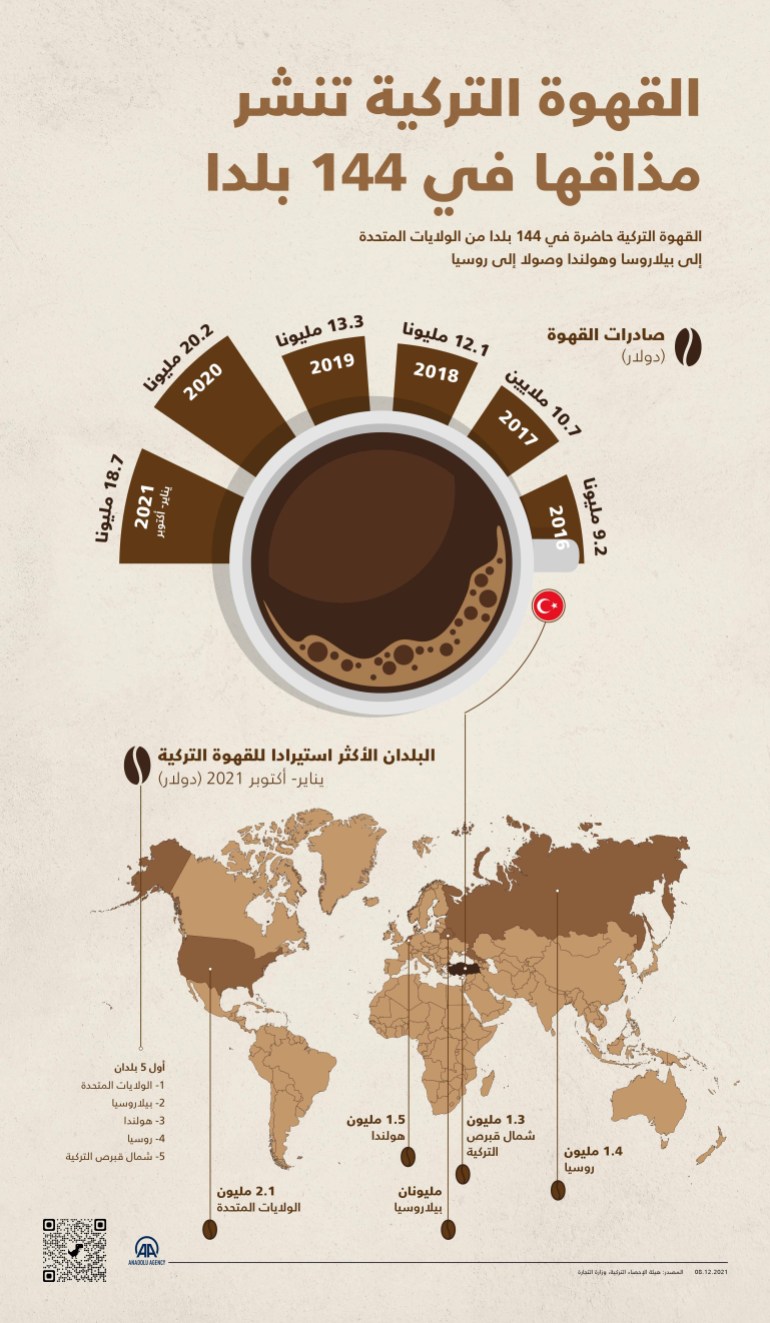Is caffeine harmful?
Does it cause addiction?
And what about dehydration?
How much caffeine is in some common drinks?
What are the main myths about caffeine?
There are several inaccuracies about caffeine, the most prominent of which we have gathered to present in this report, with information about the effect of caffeine on the body.
Myth 1: Caffeine is bad for you
When consumed at a rate of less than 300 milligrams per day, caffeine - which is one of the most prominent substances found in coffee and tea - is not associated with health problems.
If you have a specific health condition, your doctor may ask you to reduce or stop caffeine, but this is related to the person's health condition.
Indeed, caffeine may have benefits, says Dr. Sophie Balzora, an assistant professor of medicine and gastroenterologist at New York University's Grossman College, in a video published by Science Insider.
For example, some studies have shown that caffeine consumption is linked to a reduction in some types of cancers, such as colon cancer, breast cancer, head and neck cancers, chronic liver disease and inflammation.
According to some studies, 3 cups of coffee reduce the risk of stroke, as do tea and dark chocolate.
Recent research suggests that coffee may actually have health benefits, says Dr. Donald Hensrud, of the Mayo Clinic.
The scientists found a possible association between coffee and lower mortality.
Coffee may offer some protection against:
Parkinson's disease
Type 2 diabetes
Liver disease
Liver Cancer
heart attack
brain attack
However, Hensrud adds, coffee still has potential risks, mostly due to its high caffeine content.
For example, it can temporarily raise blood pressure.
Women who are pregnant, trying to become pregnant, or breastfeeding should be careful about caffeine.
Consuming large amounts of unfiltered coffee has been associated with a small increase in cholesterol levels.
Myth 2: Caffeine will make up for your lack of sleep
Nothing replaces you with sleep but sleep.
Get 7-9 hours of good sleep daily.
Myth 3: Caffeine is addictive
It depends on what we mean by "addiction".
Caffeine is a central nervous system stimulant, and regular use of caffeine causes mild physical dependence.
But caffeine doesn't threaten your physical, social or economic health as drugs do, according to a report in WebMD.
If you stop caffeine suddenly, you may develop withdrawal symptoms for a day or more, especially if you consume two or more cups of coffee per day.
Caffeine withdrawal symptoms include:
a headache
exhaustion
Worry
irritation
depressed mood
Difficulty concentrating
There is no doubt that withdrawal symptoms can lead to a few bad days.
However, caffeine does not cause drug or alcohol withdrawal severity. For this reason, experts do not consider caffeine dependence to be addictive.
Myth 4: Decaffeinated coffee does not contain caffeine
Decaf is short for decaffeinated coffee, but it actually contains very little caffeine.
Decaf is made from coffee beans in which at least 97% of the caffeine has been removed, according to a report in healthline.
There are many ways to remove caffeine from coffee beans.
Most include water, organic solvents, or carbon dioxide.
The coffee beans are washed in the solvent until the caffeine is extracted and then the solvent is removed.
Caffeine can also be removed using a carbon dioxide or charcoal filter.
And decaffeinated coffee is not completely decaffeinated.
They actually contain varying amounts of caffeine, usually around 3 milligrams per cup.
On the other hand, a regular cup of coffee contains about 70-140 milligrams of caffeine, depending on the type of coffee, the method of preparation, and the size of the cup.
Myth 5: Caffeine causes dehydration
Caffeine may make you need to urinate.
However, the fluids you consume in caffeinated beverages tend to offset the effects of fluid loss when urinating.
Although caffeine acts as a diuretic, studies show that drinking caffeinated beverages in moderation does not actually cause dehydration.
Myth 6: Caffeine is only found in coffee and tea
No, caffeine is in many products, such as energy drinks and cola drinks, and also in chocolate.
Caffeine content can range from 160 milligrams in some energy drinks to as little as 4 milligrams in an ounce of chocolate-flavored drink.
Caffeine is also present in some over-the-counter pain relievers and cold medications. In fact, caffeine by itself is a mild pain reliever and increases the effectiveness of other pain relievers.
What is caffeine?
According to medlineplus, caffeine is a bitter substance that is found naturally in more than 60 plants, including:
coffee beans
tea leaves
Cola beans, which are used to give a cola flavor to soft drinks
cocoa
How much caffeine is in some drinks?
Most people consume caffeine from drinks.
The amount of caffeine in different drinks can vary a lot, but in general they:
An 8-ounce cup of coffee (237 milliliters): 95-200 milligrams of caffeine
12-ounce (354-ml) cola can: 35-45 milligrams of caffeine
8-ounce energy drink: 70-100 milligrams of caffeine
An 8-ounce cup of tea: 14-60 mg of caffeine
What are the effects of caffeine on the body?
Caffeine has many effects on the body's metabolism, such as:
Activates the central nervous system, making you feel more awake and giving you a boost of energy
A diuretic, meaning it helps your body get rid of excess salt and water by urinating more
It increases acid secretion in your stomach, sometimes causing an upset stomach or heartburn
May interfere with the body's absorption of calcium
raises blood pressure
How long do the effects of caffeine last?
Within one hour of ingesting or drinking caffeine, caffeine reaches its highest levels in the blood.
You may continue to feel the effects of caffeine for 4 to 6 hours.

